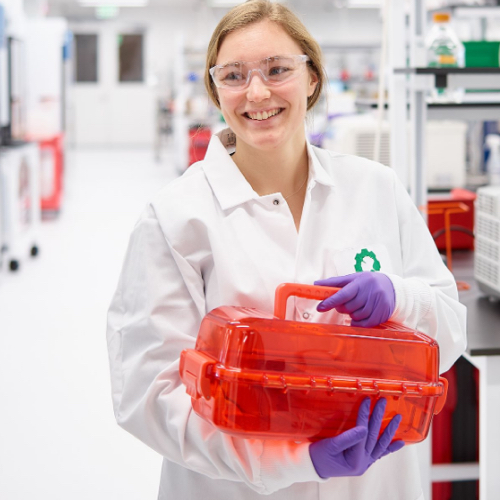Partnership enables Antheia to broaden its pipeline of critical active pharmaceutical ingredients and key starting materials
Nearly half of all medicines today are sourced from nature, and many of the most widely used essential medicines are sourced directly from medicinal plants. The World Health Organization classifies “essential medicines” as medicines “that satisfy the priority healthcare needs of the population.”
But the supply chains for some of our most critical plant-based medicines are quite fragile. The specialty plants that are currently used to produce these medicines can require years to grow and harvest, and uncontrollable factors — such as weather — affect availability and reliability of supply. Transporting and processing adds more cost, complexity, and risk. In short, our reliance on specialty plants comes with many supply chain risks. When there’s extreme demand or a constrained supply, many plant-based medicines, including widely used analgesics and sedatives, can quickly become in short supply. We recently saw this occur during the COVID-19 pandemic. Furthermore, extracting medicines from specialty plants can be very expensive; the high cost of production means many developing countries cannot afford some of these essential medicines.
Synthetic biology platforms, such as those created by Antheia and Ginkgo, make it possible for critical medicines to be produced on-demand in a much more efficient and environmentally friendly process. Additionally, when it comes to plant-based pharmaceuticals, biomanufacturing has significant advantages in supply chain resiliency and agility, cost, quality control, sustainability, and efficiency compared to conventional crop farming and processing. Synthetic biology gives us an additional way to grow these essential medicines.
Antheia, who is enabling next-generation plant-inspired medicines, and Ginkgo, with our leading horizontal platform for cell programming, are announcing today a new cell programming partnership to accelerate the development and production of essential medicines using synthetic biology. Antheia plans to leverage our industry-agnostic platform — specifically, our high-throughput enzyme design and high-throughput screening capabilities — to broaden their pipeline of critical active pharmaceutical ingredients (APIs) and key starting materials (KSMs).
Antheia will leverage Ginkgo’s industry-agnostic platform — specifically, our high-throughput enzyme design and high-throughput screening capabilities.
Kristy Hawkins, CSO and co-founder at Antheia had this to share about the news: “We’re committed to using synthetic biology to enable more equitable access to essential medicines. By partnering with Ginkgo, a global leader in organism engineering, we are greatly increasing our ability to develop essential medicines at the speed and scale necessary to drive change in global pharma supply chains.”
Antheia’s focus is on plant-inspired pharmaceuticals that are too complex to be produced through scaled synthetic chemistry processes. They’ve managed to efficiently produce highly-complex pharmaceuticals by pioneering whole-cell engineering, a technique that reconstructs multiple steps of a biosynthetic pathway of unprecedented complexity in yeast cells. This partnership with Ginkgo enables Antheia to tap into a set of complementary capabilities and resources at Ginkgo to create synergies that allows Antheia to achieve more with its own technology platform. Through our partnership, Antheia plans to leverage Ginkgo’s extensive and rapid cell programming platform and biological codebase to greatly expand and accelerate its strain and enzyme engineering work.
Both organizations are committed to using biology to build a better future, and we look forward to a long lasting partnership and positive impact in the world. We believe Antheia is at the cutting edge of using synthetic biology to produce entire classes of medicines that were previously inaccessible; we’re thrilled that Ginkgo’s platform can support innovators like Antheia and create next generation manufacturing technologies for essential medicines.


